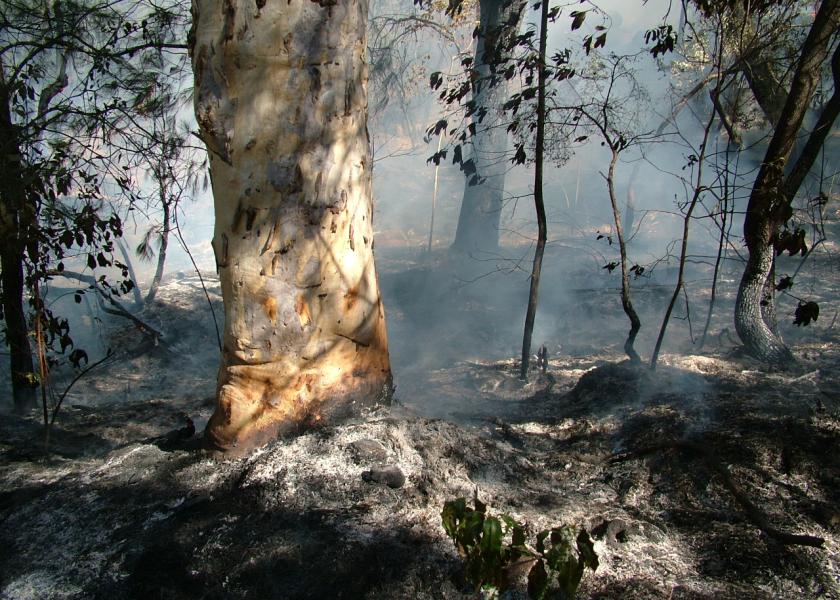Feral Pig Study May Help Australia Recover from Bushfires

The raging Australian bushfires have already killed an estimated one billion animals and could even cause some entire species to go extinct, said Professor Chris Dickman of the University of Sydney in a university release.
The devastation this will have on the Australian ecosystem is hard to comprehend. But, an essay in The Conversation by scientists Brandon Barton and Abby Jones of Mississippi State University said a mass mortality event study on feral swine may hold clues to help Australia recover.
In spring 2019, researchers from Mississippi State University and the University of Florida set up an experiment to study the impact of a mass mortality event. They partnered with professional trappers focused on removing feral pigs for conservation purposes. Rather than letting the carcasses go to waste, the researchers were able to put them to good use, the article explained.
After collecting data on the site of the outdoor experiment in Oklahoma, the researchers sourced 15 tons of feral pigs from professional trappers and set the animals out to rot on the land. For weeks, the team observed the short-term impact of the carcasses on the ecosystem and plan to continue to monitor the site for the next several years.
They documented decomposition rate, monitored insect and scavenger visitors and collected microbial samples to detect disease-causing bacteria.
The experiment has already resulted in one important takeaway, the authors explain. Healthy scavenger populations are critical to reducing the negative effects of a mass mortality event. Because they eat the corpses of dead animals before they can decompose, the scavengers prevent the poisoning of soil and breeding of bacteria.
“While Earth’s ecosystems may not be able to avoid future mass mortality events, an obvious priority is to maintain the biodiversity we have – including the scavengers that clean up the mess,” the article said.
The finding suggests that once Australia has the bushfires under control, one thing is certain. The ecosystem that will emerge will be different.
More from Farm Journal's PORK:
Feral Swine: USDA Monitors World’s Worst Invasive Alien Species







